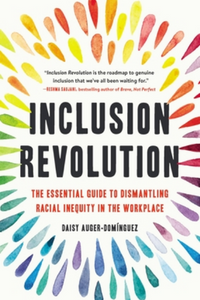Focusing on the years 1971 to the present, Questlove finds the hidden connections in the American tapes- try, whether investigating how the blaxploitation era reshaped Black identity or considering the way disco took an assembly-line approach to Black genius. And these critical inquiries are complemented by his own memories as a music fan, and the way his appetite for pop culture taught him about America.
During one week in January 2021, a motley crew of retail traders on Reddit’s r/wallstreetbets forum had seemingly done the impossible—they had brought some of the richest players on Wall Street to their knees. Their weapon was GameStop, a failing retailer whose shares briefly became the most-traded security on the planet. This is the riveting story of how the meme stock squeeze unfolded, and of the real winners of the GameStop rally.
Behind every triumph, every expression of his gifts, Acho has had to ignore what everyone around him called “logic”: the astronomical odds against making it, the risks of continuing to dream bigger or differently. Instead of playing it safe, at every turn Acho has thrown conventional wisdom—logic—out the window. Now, in this revelatory book, he’s empowering us all to do the same and become change-makers ourselves.
Public awareness of mental illness has been transformed in recent years, but our understanding of how to define it has yet to catch up. A narrative has taken hold that a mental health crisis has been building among young people. Psychologist Lucy Foulkes argues that the crisis is one of ignorance as much as illness. Have we raised a ‘snowflake’ generation? The real question in need of answering is: how should we distinguish between ‘normal’ suffering and actual illness?
Lewis R. Gordon, one of the leading scholars of Black existentialism and anti-Blackness, takes the reader on a journey through the historical development of racialized Blackness, the problems this kind of consciousness produces, and the many creative responses from Black and non-Black communities in contemporary struggles for dignity and freedom.
We are in the midst of a global reckoning on race, and corporations are on high alert. But conventional approaches have fallen short, leaving nagging questions about next steps. Why do diversity trainings fail? What’s so wrong with a company’s “colorblind” workplace culture? In Inclusion Revolution, Daisy Auger-Domínguez provides frank answers to why popular efforts fail and presents the definitive roadmap for revolution.
Nicolas Cage is many things, but love him, or laugh at him, there’s no denying two things: you’ve seen one of his many films, and you certainly know his name. But who is he, really, and why has his career endured for over forty years, with more than a hundred films, and birthed a million memes?
Age of Cage is a smart, beguiling book about the films of Nicolas Cage, as well as a sharp-eyed examination of the changes that have taken place in Hollywood over the course of his career.
What is the role of literature in an era when one political party wages continual war on writers and the press? Drawing on her experiences as a woman and voracious reader living in the Islamic Republic of Iran, her life as an immigrant in the United States, and her role as literature professor in both countries, Nafisi crafts an argument for why, in a genuine democracy, we must engage with the enemy, and how literature can be a vehicle for doing so.
Selected for Navy flight training in 1972, Mariner and her five fellow graduates from the inaugural group of female Naval Aviators racked up an impressive roster of achievements, and firsts. Leading by example, they challenged deep skepticism within the fleet and blazed a trail for female aviators wanting to serve their country equally with their male counterparts. This is the story of their struggles and triumphs as they earned their Wings of Gold.













